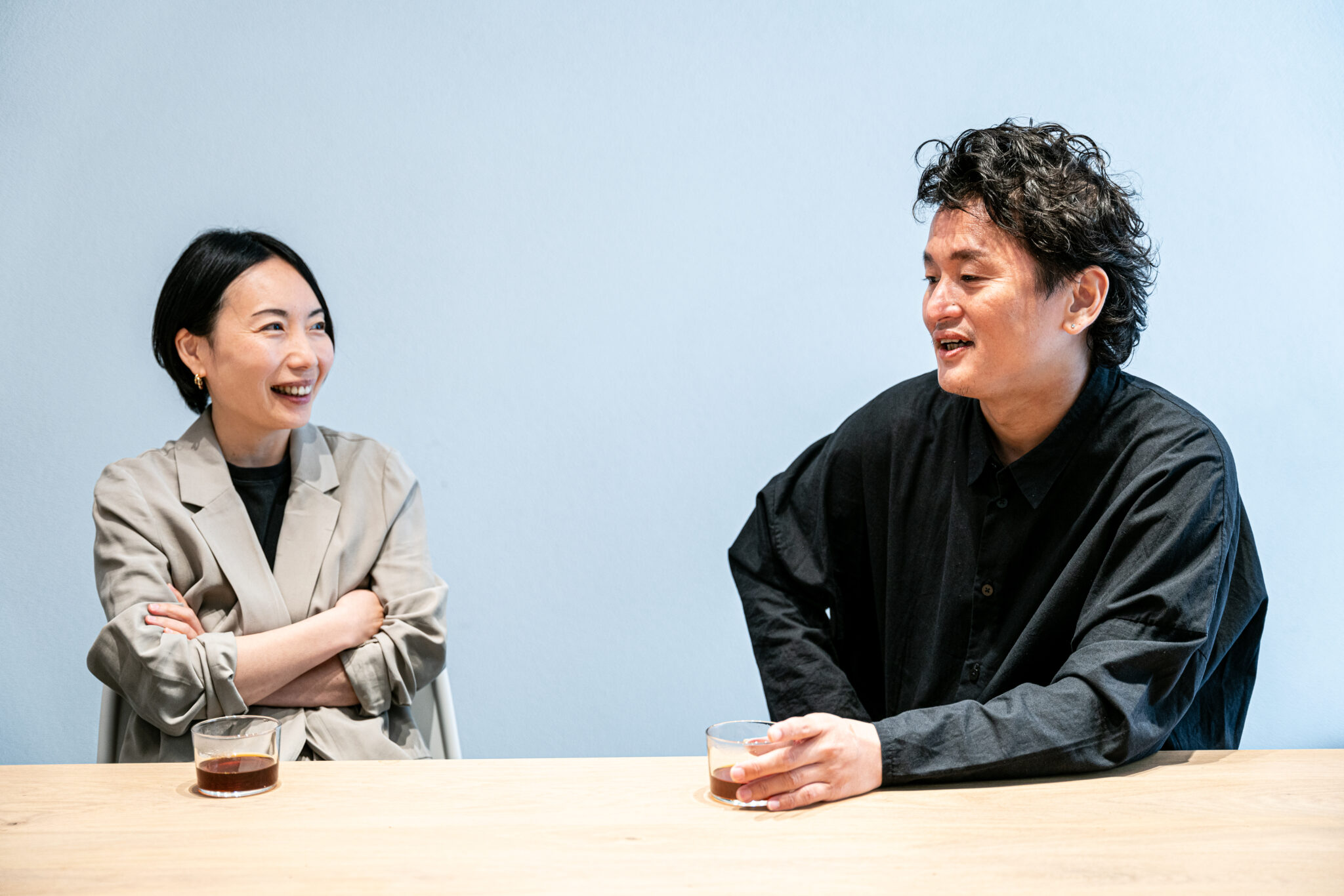A cup of coffee has a way of bringing happiness into our daily lives.
Have you ever taken a moment to think about how this happiness is made possible by the coffee growers who cultivate green coffee beans around the world?
Even if you were curious about the lives of coffee growers and the processes behind coffee production, such information often remains out of reach, even for coffee roasters and consumers who enjoy the final product.
TYPICA is trying to change that. A global startup originating from Japan, TYPICA has created an online platform that connects coffee producers and roasters around the world, allowing them to directly trade unique coffee beans in quantities as small as a single jute bag.
We interviewed Masashi Goto (CEO) and Ayane Yamada (CQO), now based in the Netherlands, about their company’s journey and its future.
Their experiences visiting coffee growers were filled with stories that capture the very essence of shikohin.
Learning how to face difficult challenges through a disastrous experience in Cuba
Although TYPICA is headquartered in Japan, Goto and Yamada typically work from their base in Amsterdam. The company has expanded its presence globally, with additional offices in Seoul, Taipei and New York. As of August 2024, TYPICA’s distribution network spans 57 countries, connecting over 110,000 coffee producers and roasters across 80 countries around the world.
Building this network of coffee producers was a painstaking process. Goto and Yamada traveled to coffee-producing countries themselves, visiting individual coffee farmers multiple times to develop business relationships.
They had no special techniques or insider connections. Instead, they relied on sharing their clear vision.
Yamada: “We decided to dive right in and visit coffee origins ourselves. Our first trip was to Ethiopia in December 2019. Normally, it’s unheard of to visit these regions without making prior arrangements. But we managed to secure one meeting while we were there. We knew nothing about trade at the time, so we ended up learning a lot from the producers themselves. People with long careers in the coffee industry later told us how reckless we were.”
Goto: “I’d be far too scared to do something like that again today. We must have had a screw loose.”
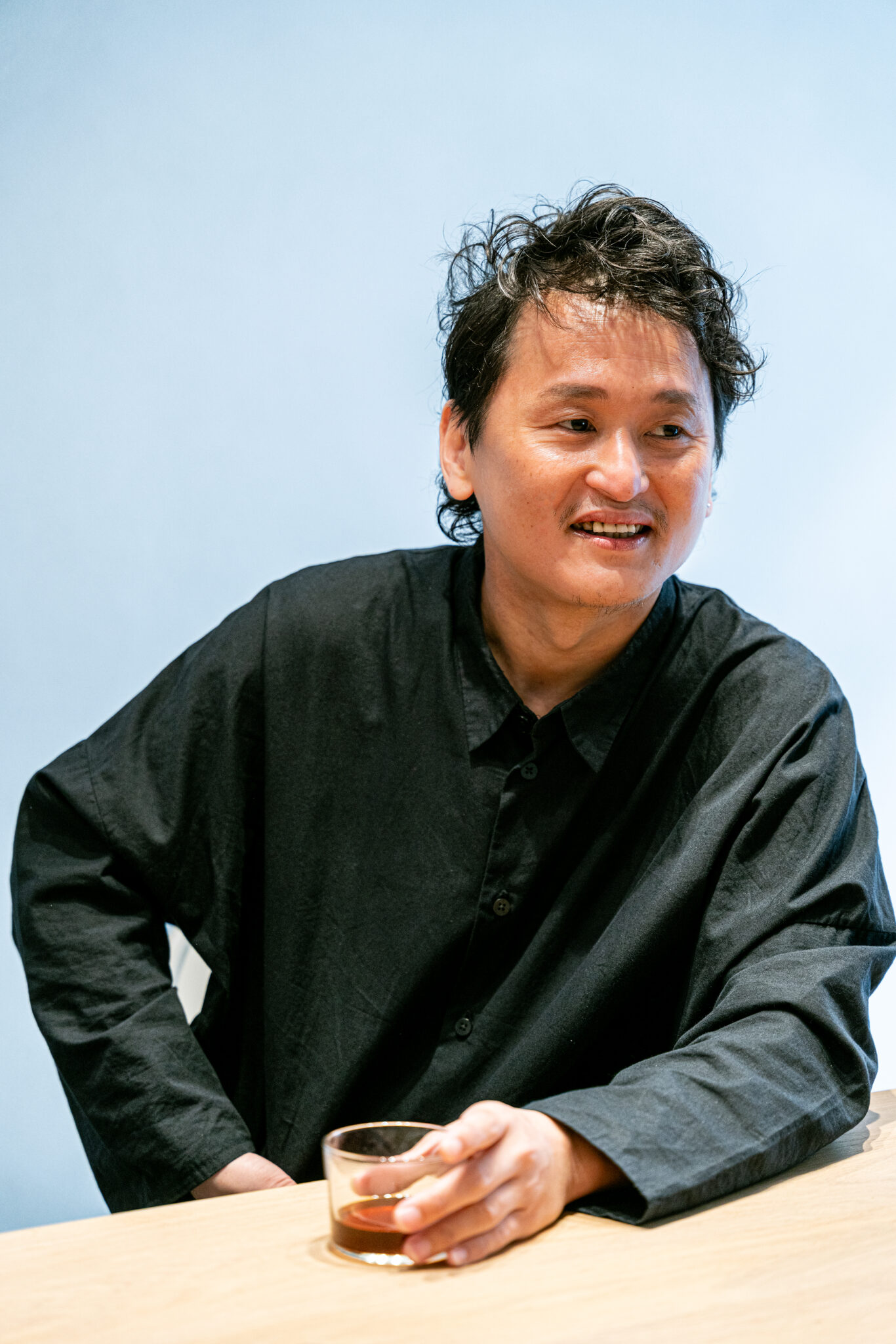
Goto says he always tries to make the most of opportunities, both good and bad, and work with them in a positive way. He says there was one formative experience in Cuba that he will never forget.
Goto and Yamada chose Cuba as their first destination to establish direct coffee trade connections. But shortly after their arrival, a massive hurricane struck the region – a disaster locals described as a “once-in-a-century” event. Goto and Yamada found themselves trapped in their hotel, plunged into darkness by a power outage, with even the water supply cut off.
The chaos continued for several days, leaving them frustrated as they couldn’t advance their business negotiations and felt helpless amidst the disaster.
One evening, while they were struggling to eat their dinner by the faint light of their cell phones, they heard cheerful music in the distance.
They wondered what it could be and stepped outside. What they found was a lively gathering in the dimly lit hotel space. Children, grandmothers, and people of all ages had come together, blasting music and dancing with complete abandon.
What Goto and Yamada witnessed was the wisdom of the Cuban people, who have learned to survive and thrive in the face of harsh daily realities.
Goto: “It made me realize that we laugh not because something is fun, but things become fun because we laugh. We don’t dance because we are in an enjoyable environment, but our time becomes enjoyable because we dance. It was a real revelation for me. I remind myself of this experience whenever I face any hardship.”
For Goto and Yamada, this was also an opportunity to connect with the spirit of coffee producers.
Yamada: “It made me understand the true essence of diversity. Coffee became a global shikohin thanks to the work of producers such as those in Cuba. I’ve come to see coffee as a tool for appreciating such history and diversity.”
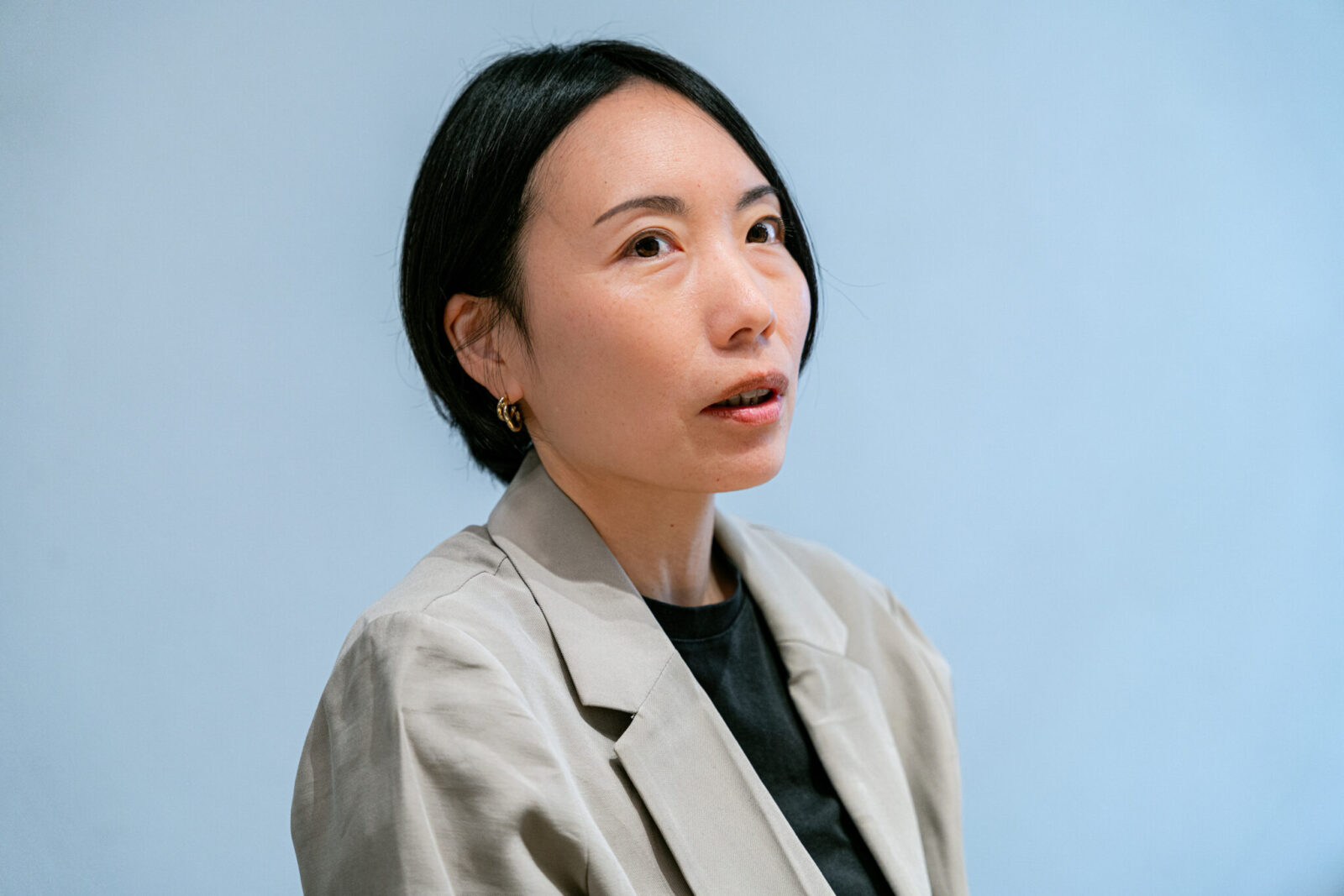
The fateful meeting of the two founders, a coffee roaster and an entrepreneur
Masashi Goto, one of TYPICA’s founders, started his first business when he was 19 years old and has since been involved in various businesses. He founded TYPICA, his latest venture, in 2019.
Goto: “Since childhood, I’ve been incredibly curious. As I learned new skills, I found myself enjoying life more. This led me to explore new worlds and meet new people, which sparked even more curiosity. It’s this simple cycle that has brought me to where I am today.”
Goto has always been fearless in his pursuits. Once he has a clear vision, he never doubts whether something is possible; he simply goes for it with a positive mindset.
Coffee has been a staple in Goto’s life for as long as he can remember. Whenever he hit a roadblock at work or faced a difficult problem, he would start his day with a cup of coffee, using that time to reflect and find clarity. However, he still considered himself an ordinary coffee lover, not necessarily a connoisseur.
In 2013, during a visit to San Francisco, Goto got a glimpse of the burgeoning coffee culture on the West Coast. By chance, he had the opportunity to speak with the founder of Blue Bottle Coffee, which at the time had not yet made its way to Japan.
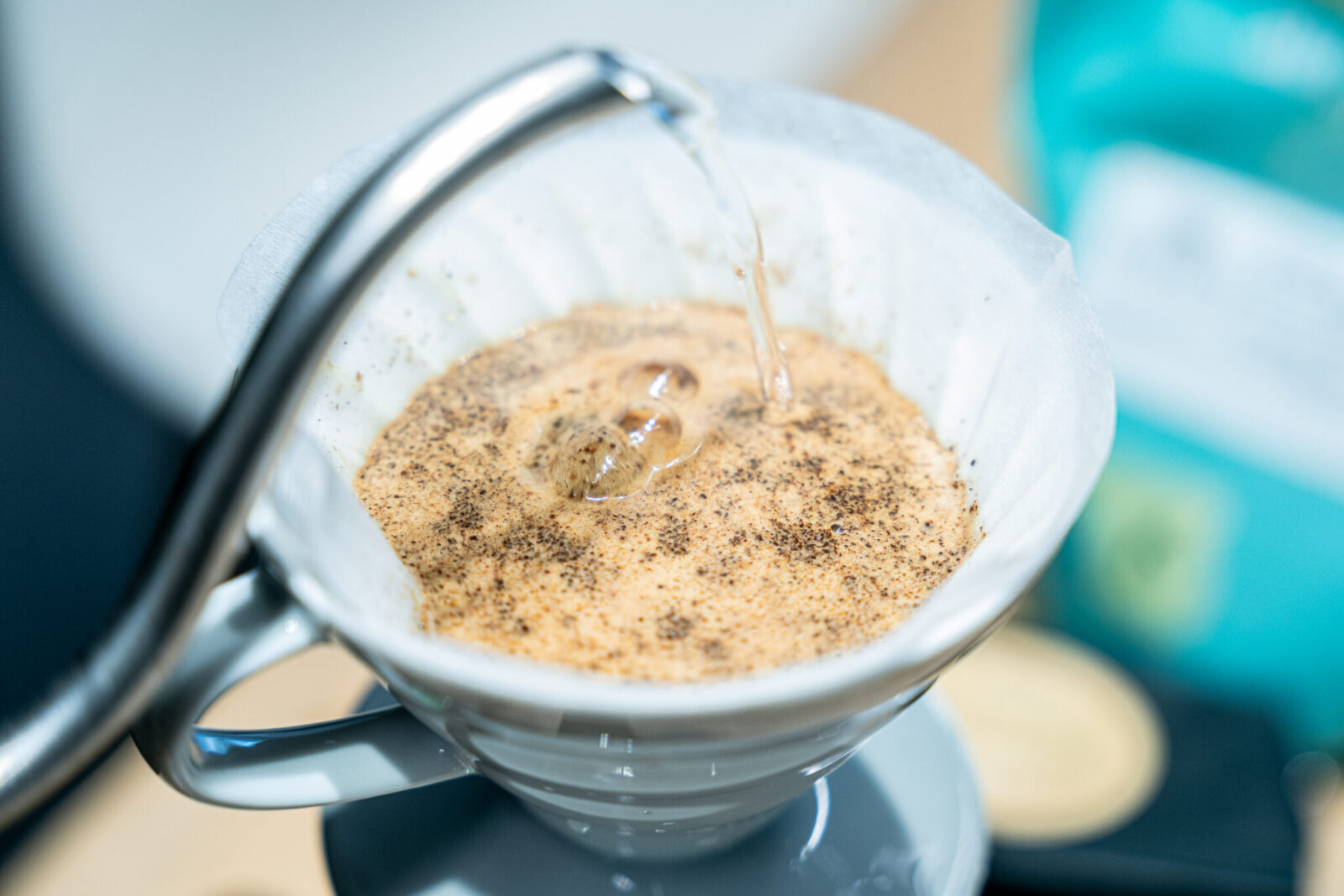
“In that conversation, I learned a lot about coffee as an agricultural product, its history, and current industry trends. It made me think more deeply about coffee. The founder also mentioned a newly opened coffee roastery, the largest in the Kansai region, and suggested that I visit when I returned to Japan.”
“That’s where I met Yamada, who would later become my business partner.”
Ayane Yamada, TYPICA’s other founder, has always been a passionate coffee enthusiast. Her journey in the coffee industry began during her student years with a part-time job at Starbucks.
Inspired by the West Coast coffee culture, she would explore various new coffee shops and even take trips to San Francisco. As she dived deeper into the world of coffee, she found herself increasingly curious about the origins of the beans.
“I felt a growing desire to connect directly with producers and deliver their coffee to consumers. Just as this feeling was intensifying, I was recruited by the owner of a new coffee roastery and started working there as a roaster. That’s when Goto visited our store.”
It was a fateful encounter, sparked by their mutual love for coffee. Their shared vision eventually led to the founding of TYPICA.

What makes the TYPICA platform is so revolutionary
When you visit TYPICA’s website you’ll immediately notice something unique: photos of people feature more prominently than images of coffee beans.
These pictures showcase people from all corners of the coffee industry, including growers and roasters. Each person is introduced with meticulous care and enthusiasm through detailed articles, numerous photographs, and sometimes even videos.
Coffee is a massive market, second only to oil in size.
The majority of coffee trading occurs on exchanges in London and New York, where prices are set. As an agricultural product highly susceptible to climate variations, coffee relies on futures trading to stabilize both price and supply, with deals struck in advance.
However, this system often puts coffee growers at a disadvantage. Consumer countries frequently drive down prices, underbidding and purchasing at unfairly low rates. This imbalance is partly rooted in the colonial history of many producing regions, where mass production was imposed by colonizers. Today, the coffee industry still grapples with many challenges, including poverty among growers, quality issues, and environmental destruction.
Meanwhile, consumer preferences have diversified in recent years. The rise of coffee chains like Starbucks and Blue Bottle has sparked increased interest in specialty coffees. A growing number of roasters and coffee lovers now seek high-quality, unique beans, even if they’re produced in small quantities.
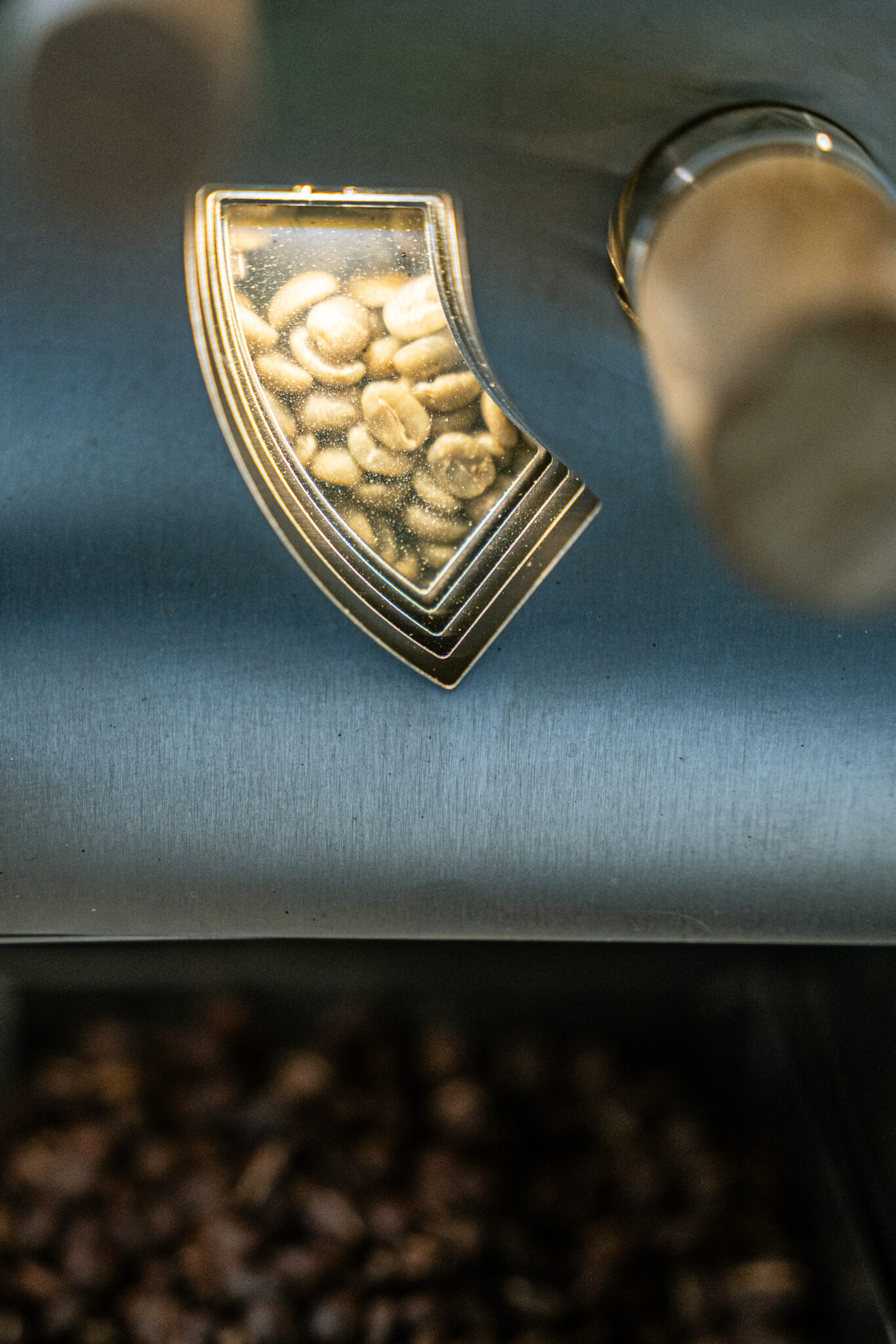
Although the term “fair trade” has been around for a while, TYPICA has taken this concept a step further, trying to dramatically transform the coffee world.
TYPICA has created an online platform that enables direct trade of green coffee beans on a global scale, including Asia – a first in the industry. It allows growers to set their own prices freely. The more care and effort producers invest in cultivation and processing, the more they can reflect this in their pricing. If they produce high-quality coffee beans, they’re assured that their hard work will be rewarded.
This was a revolutionary model that overturned the norm of the coffee industry.
Moreover, their platform has also made it possible to trade coffee in much smaller quantities, starting from just one jute bag. This eliminates the common dilemma faced by both sellers and buyers who were previously unable to trade in small volumes.
As a result, small-scale producers and roasters who previously had no way to connect can now forge miraculous partnerships across vast distances.
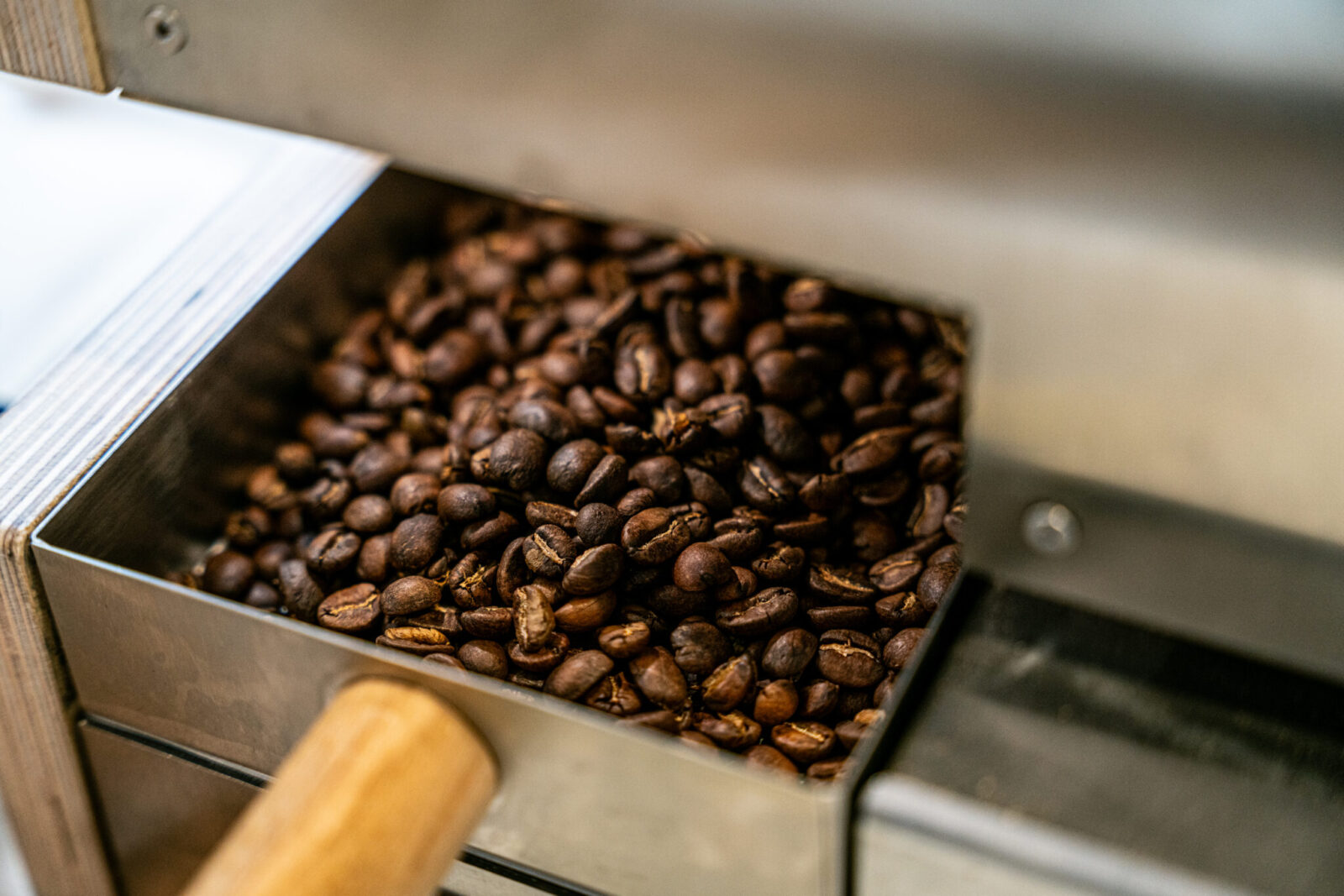
Understanding consumer needs and the freedom for growers to sell their own coffee beans
Ensuring the quality of green coffee beans is crucial to making direct trade by the jute bag a viable option. If a customer buys a single bag only to find it’s of subpar quality, this business model simply won’t work.
Thorough quality control is one of TYPICA’s key strengths.
At TYPICA’s Amsterdam office, they receive samples of coffee beans and put them through a rigorous process. Each sample is individually inspected, roasted, and brewed to assess its flavor. As Chief Quality Officer (CQO), Yamada oversees this work, applying this process to every single sample that comes through their doors.
Goto: “Although we operate on a global scale, we only distribute products that we can personally verify and approve. We’re dealing with ingredients of a food product, and in the trade business, it’s a major responsibility of a platform to ensure rigorous quality control. We understand that buyers face many uncertainties when purchasing.”
If a subpar product reaches a buyer, TYPICA offers a full refund or replacement. It’s a risk they willingly take to maintain quality standards.
Currently, their refund and return rate in Japan is a mere 0.86% over the past five years.
While their quality control is managed through computer systems that trace both product and data details, Yamada emphasizes the importance of maintaining the human aspect of coffee production.
Yamada: “I find that the people who communicate well, follow schedules and respond quickly to our messages tend to produce better-tasting coffee at fair prices. Every day, I sense that it all comes down to personal character. Even if someone is a little clumsy, I can discern their sincerity through the quality of their samples. Every detail of a person’s character shows in their work.”
TYPICA emphasizes that their goal isn’t to exclude growers who currently can’t operate on their platform. Instead, they aim to collaborate with exemplary farmers who can serve as role models, guiding producers in each region towards cultivating high-quality coffee beans.
One of TYPICA’s upcoming initiatives, set to launch this year, is a trading model where buyers can place requests for next year’s harvest (future crops). By fully disclosing buyer demand data, this model empowers sellers to manage their production and marketing autonomously.
This approach allows coffee growers to receive offers from buyers worldwide and conduct business negotiations freely on their own terms.
Many major coffee-producing regions have a dark history of colonization and slavery. This means there’s a persistent psychological divide between buyers and sellers. Historically, coffee growers lacked access to any information, so they had no choice but to submit to those in power.
Goto: “This new model is the first of its kind in the history of the world. It allows coffee growers who produce good products with sincerity and care to do fair business on a global scale based directly on consumer needs.”

While TYPICA is fundamentally a business venture, their model offers new opportunities for small-scale coffee growers.
“We’ve visited coffee-producing regions ourselves, so we’re acutely aware of the harsh realities coffee growers face. We’re addressing these issues by bringing everyone together to develop in a positive and progressive way. Our aim is to create high-quality products, build solid networks and expand thriving communities. That’s the movement we are striving to start.”
“Serious messages like ‘contributing to coffee-producing regions’ don’t appeal to the masses. To engage people, things need to be cool, cute, tasty, or fashionable. That’s the kind of platform we want TYPICA to be.”
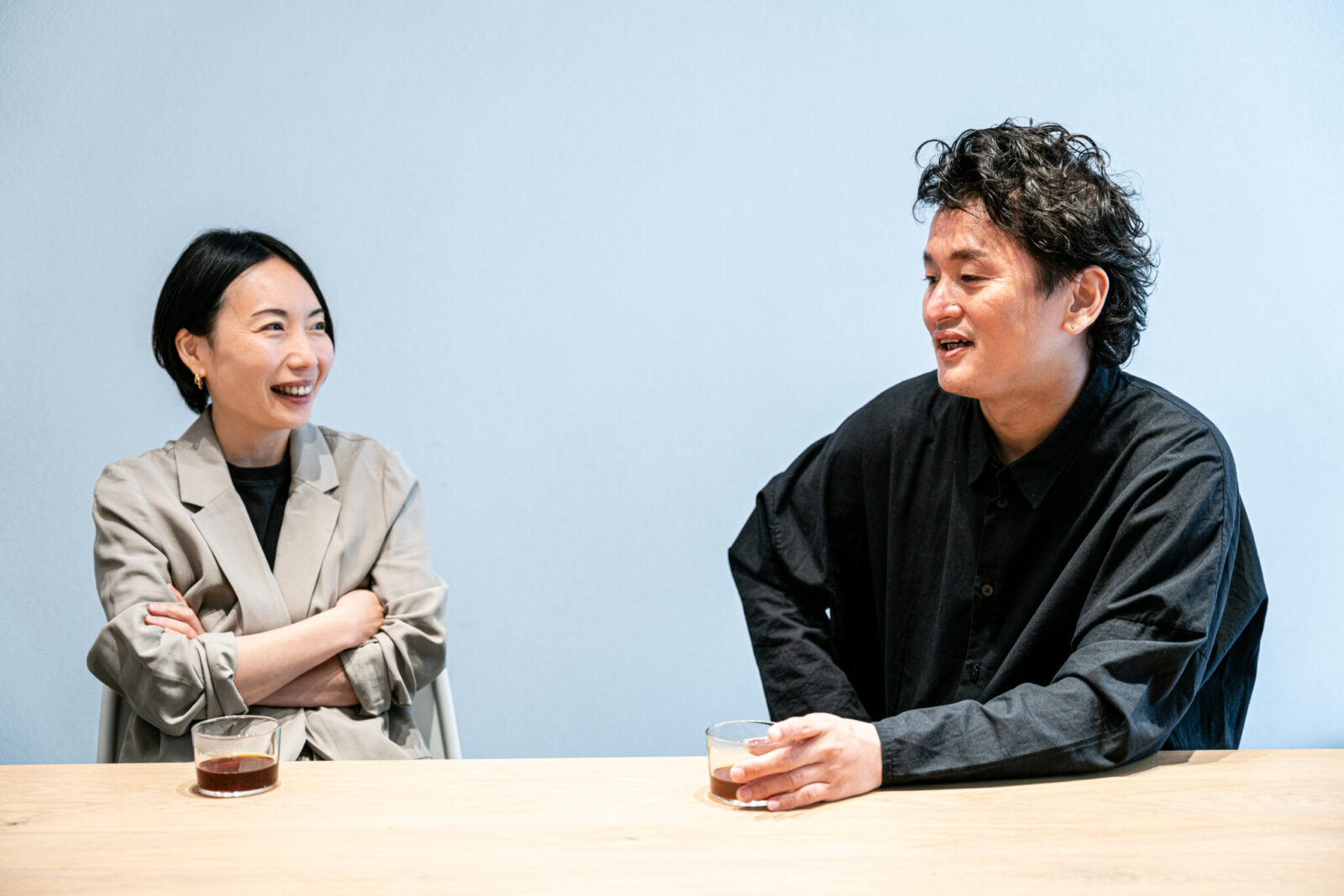
We want what we love to last forever so we do what we can to make that happen
The company name TYPICA comes from the coffee variety closest to the original, ancient strain. This name reflects their desire to value the fundamental essence of all things.
Yamada: “Our company’s motto is to work in a way that allows people to express their true selves. The same principle applies to coffee. There’s a profound beauty when coffee reveals its authentic, delicious flavor, enabling people to genuinely connect with distant growers and their lands. We chose this name because we want to cherish this kind of fundamental beauty.”
TYPICA envisions a world where delicious coffee can be enjoyed for generations to come, in an ecosystem where growers, roasters, coffee lovers and local communities can all find happiness.
This brings us to another of their endeavors currently in the works.
Goto: “Under this initiative, coffee growers will not only be able to offer their beans, but propose social impact projects to increase the sustainability of coffee production. Roasters from around the world can not only buy delicious coffee but also participate in those projects to address social issues in coffee origins. They will then become a hub to spread awareness to other coffee lovers. We’re considering issuing some kind of certificate to participants in order to deepen the connections this initiative will forge.”
For instance, these social actions might involve contributing to the construction of a bridge or a school in a coffee-growing community, all through the simple act of enjoying a cup of coffee. TYPICA is building a system that provides tangible, relatable connections and actions.
Goto says that their company’s growth is intrinsically linked to addressing social issues.
“The economy isn’t just about making more money. We believe in the concept of ‘Keiseisaimin’ – the idea that businesses should contribute to the betterment of the world. This means the economy is about improving society and alleviating people’s suffering. I believe running a business is about increasing joy and decreasing hardship. It’s the conviction that what’s good for the world will grow, and growth will be good for the world.”
Goto: “We’ve received significant investment in our business, which naturally brings considerable pressure to succeed. However, we’ve been fortunate to attract investors who deeply resonate with our vision, mission, values, business plans, and overall philosophy.”
In relationships such as those between coffee growers and distributors, or users and platforms, there’s often an inherent power imbalance in the real world, where one party becomes dependent on the other.
However, TYPICA is based on an underlying philosophy to build a collective community where both parties are independent yet work together to co-create that community.
Goto: “The reason our community has expanded so much and forged so many connections between coffee growers and roasters is very simple. We all want the things we love to last forever. That’s it. The people in the coffee industry all have a deep love for coffee.”
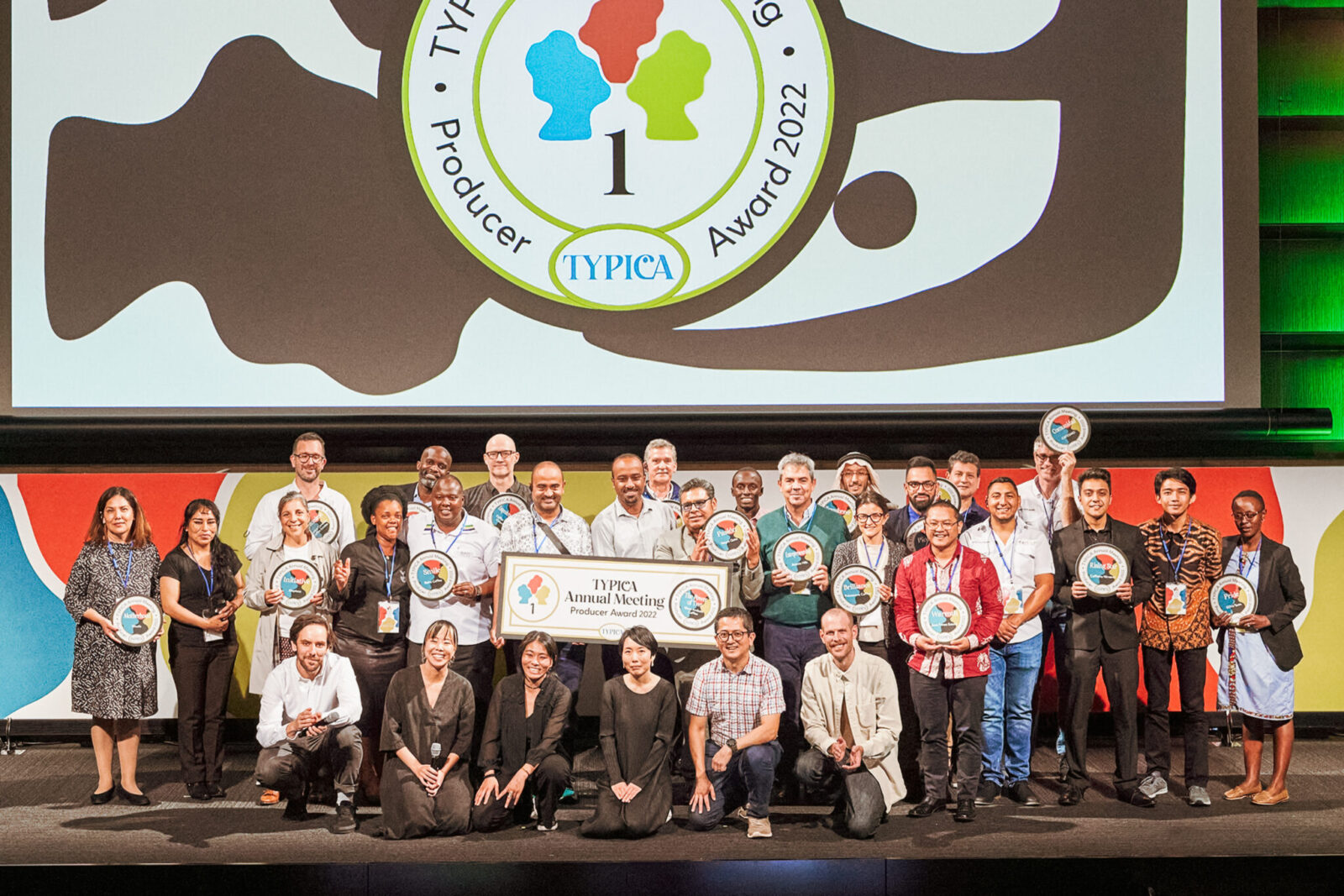
Changing the world through deep connections between roasters and coffee growers
Leon Christiankis is a coffee grower in Tanzania . He and his partner Aideen were visiting Japan so we went to TYPICA’s Tokyo office to talk to them.
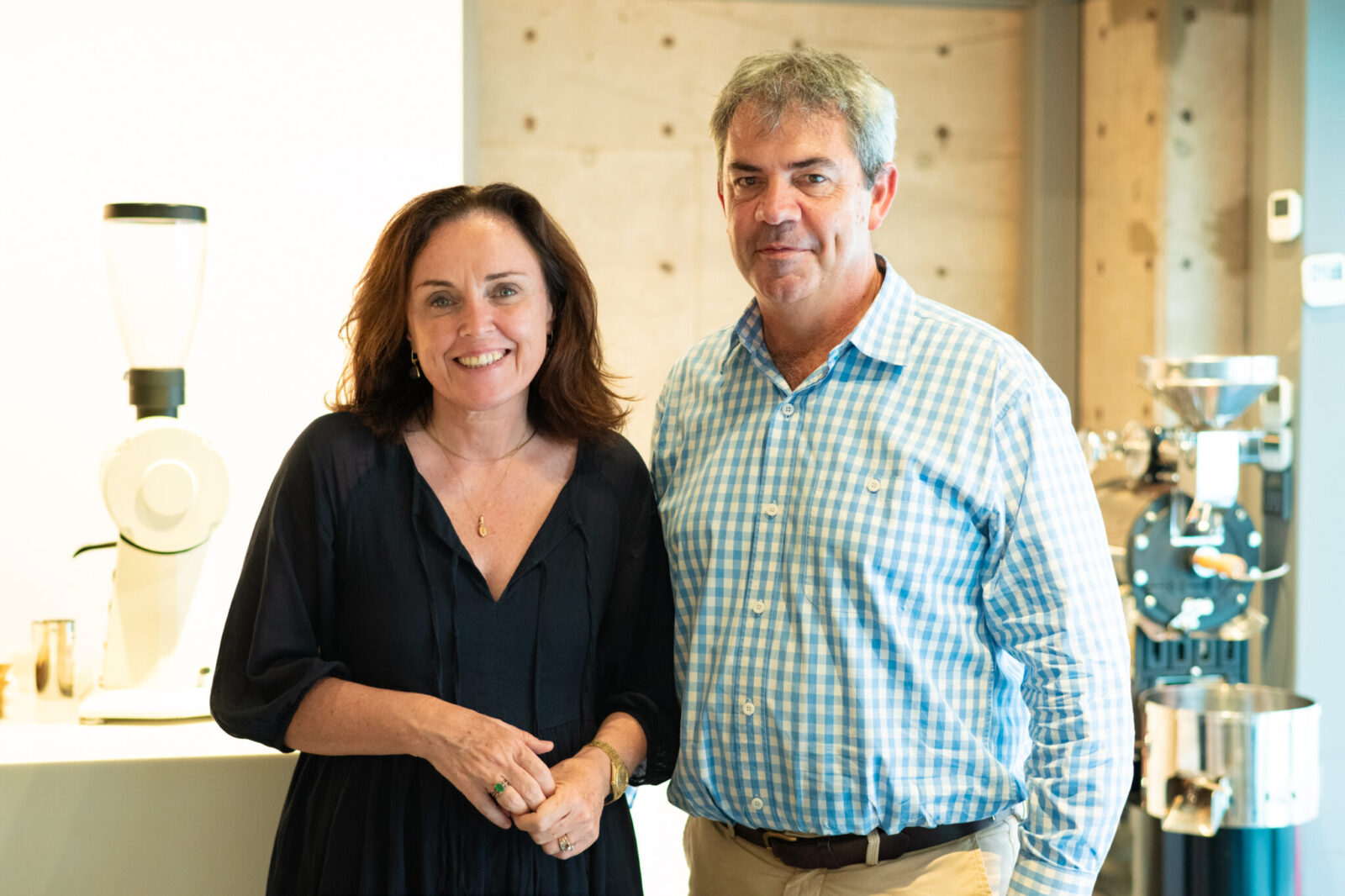
They said that since partnering with TYPICA, they’ve become more focussed on the quality of their coffee, investing more effort into maintaining and improving it than before.
“Because TYPICA connected us directly to the roasters, we became more motivated to improve quality and take on new challenges. It means a lot to see the faces of the people buying our coffee beans. Previously, our only interaction with buyers was when we received payment. The transparency of the TYPICA platform is really wonderful.”
“We were so happy to meet roasters during our current trips to Japan, Taiwan and Korea and hear them say they enjoyed our coffee beans. When we get this kind of direct feedback, it motivates us to make better coffee beans. Seeing feedback on social media also brings us joy. We’ll share the feedback we’ve received with our staff back home.”
The coffee served to us at the office, made from Leon’s beans, had a wonderful fruity aroma and a fresh flavor. It was a delightful cup that brought smiles to our faces.


One of Leon’s current challenges is pioneering the cultivation of Geisha coffee in Tanzania.
Geisha, a variety that originated in Ethiopia, was once grown in Tanzania but is now most famously produced in Panama. It’s a notoriously difficult variety to cultivate, making it rare and highly sought after by coffee lovers.
Leon speaks with passionate enthusiasm about this venture: “We want to revitalize Geisha production in Tanzania. I believe there’s a bright future for Tanzanian Geisha.”
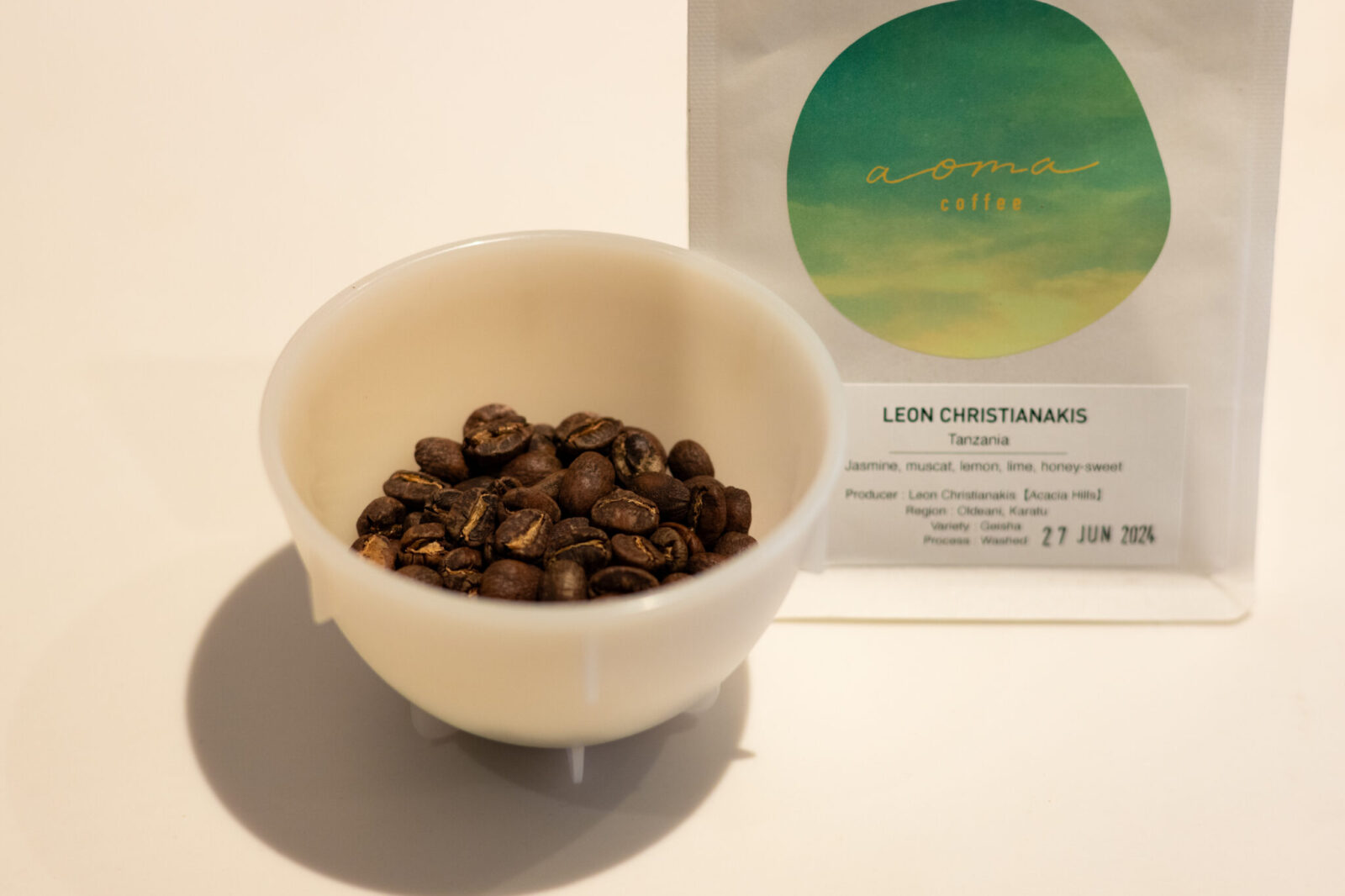
“Our goal isn’t to become a famous brand just for ourselves. We love Tanzania’s land and community, so we want to explore all its potential. More than 90% of coffee growers in Tanzania are small-scale farmers. We plan to share the Geisha variety with the farmers around us.”
There’s also discussion of collaborating with TYPICA to develop and promote educational programs.
“To gain the trust of other farmers, we believe it’s important to first establish ourselves as role models. We aim to demonstrate that it’s possible to produce high-quality coffee beans and sell them at fair prices by creating strong connections with coffee roasters.”
TYPICA connecting the world through coffee and the future of shikohin
Goto says: “Making coffee is a cool job.”
“The reason TYPICA has been able to connect with so many wonderful coffee growers and roasters isn’t just about logic. We always say it’s a combination of logic and magic. Human emotions and connections can’t be neatly categorized into logical boxes. There are countless instances where people choose to work together simply because they like each other. In a way, you could say that what we’ve achieved is the result of an improbable convergence of various unlikely encounters.”
The world of coffee has expanded dramatically, thanks to growing connections between overseas coffee growers and local roasters.
“Take COFFEEMAN good, a roaster in Aomori Prefecture. Initially, buying even one jute bag of coffee was challenging for them. But they believed in our vision and made the effort to purchase through us. They’ve also participated in TYPICA Lab, where roasters meet face-to-face with growers. This experience completely transformed their worldview.”
“It’s amazing how much human potential can be realized by connecting previously unconnected things. What was once merely a transaction of money and product has evolved into an exchange between souls, an interaction of different lifestyles. We’re seeing the worlds of coffee growers and roasters around the globe opening up to each other. I truly sense that the world is changing.”
Yamada says that “For me, coffee is like air. Its absence would feel unnatural.”
“In Bolivia, where specialty coffee production is still developing, I discovered incredibly delicious beans from a small farmer deep in the mountains who had never exported before. It felt like finding treasure. These moments reveal the true deliciousness and wonder of coffee. They’re unique, irreproducible – the essence of what makes coffee a true shikohin.”
TYPICA’s unwavering dedication to the essence of their products seems to attract like-minded people and foster trust.
Goto: “We’re both very persistent. We’ve been talking about our ideals since we started in the coffee business ten years ago, and we’ve been saying the same thing all these years.”
That is the essence of TYPICA’s continuing journey.
Click here for all articles exploring BOTANICALS
Translation: Sophia Swanson
Advisor to corporations, and local governments on promoting local tourism. Published work includes, “Aomori & Hakodate Travel Book” (Daimond), “San’in Travel: Craft and Food Tour” (Mynavi), “A Drunkard’s Travel Guide: Sake, Snacks, and Tableware Tour” (Mynavi). Her life work is to explore towns in her travels, drink at different shops and visit the workshops of different crafts. Interests include tea, the Jomon period, architecture, and fermented foods.
Editor and creator of the future through words. Former associate editor of Huffington Post Japan. Became independent after working for a publishing company and overseas news media. Assists in communications for corporates and various projects. Born in Gifu, loves cats.
